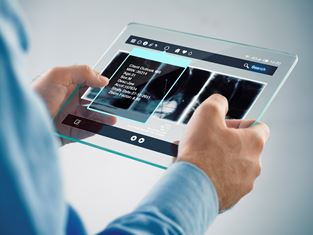Sensor technologies and virtual reality are key to transforming healthcare
29 January 2015
Technological advances in the medical sector will start to drive the most active and rapid progression health systems have ever seen over the next few years, according to Plextec Consulting.
Moving away from the typical ‘doctor–patient’ model, the company predicts that the next five years will witness the health service become increasingly more open to portable, easy-to-use and low-cost systems, that empower patients to self-monitor, prescribe and resolve medical problems to ease the burden on over-stretched GP surgeries, A&E departments and hospitals across the UK.
Analysts predict the sensor market in consumer healthcare is expected to reach $47.40 billion by 2020 and will bring real value to the medical industry in terms of potentially enabling more patients to be screened and treated in the community, with post-operative patients returning home just 48 hours after major surgery. However, this mass introduction of sensor technology needs a major education programme to help speed adoption by consumers and enable the rapid movement of the market.

Collette Johnson, Business Manager Medical at Plextek Consulting commented, "To realise innovative care models and make our vision a technical and commercial reality, emerging start-ups, manufacturers, retailers and healthcare professionals must all work together to ensure innovative devices and revolutionary medical systems make the step from concept to reality.
"Sensor technology will revolutionise the future of our health for the better, and with the correct education of users of the system and intelligent interpretation of the data collected in areas such as dementia and hydration monitoring, it can change the way we deliver healthcare. Consumers must embrace this technology, start using it and be in control of their health."
In virtual reality there is already a perception shift in the medical industry with VR systems helping rehabilitate and train patients and industry professionals, with the medical simulation market estimated to be worth $1.9 billion by 2017. Further innovation in VR will lead to the development of systems to help patients overcome traumatic situations or rehabilitate their body; unite the family by providing a greater understanding of how loved ones are being affected by their particular health issue eg schizophrenia; and open up VR as an effective distraction technique for subduing pain.
To elaborate on how pioneering technologies in sensor applications and virtual reality systems will enhance healthcare delivery within the next five years Collette Johnson has authored a vision paper "Patient of the Future: 2020” drawing on more than a decade’s knowledge and experience of the NHS and working with breakthrough medical start-ups. This paper can be downloaded here.
Source: Plextek Consulting